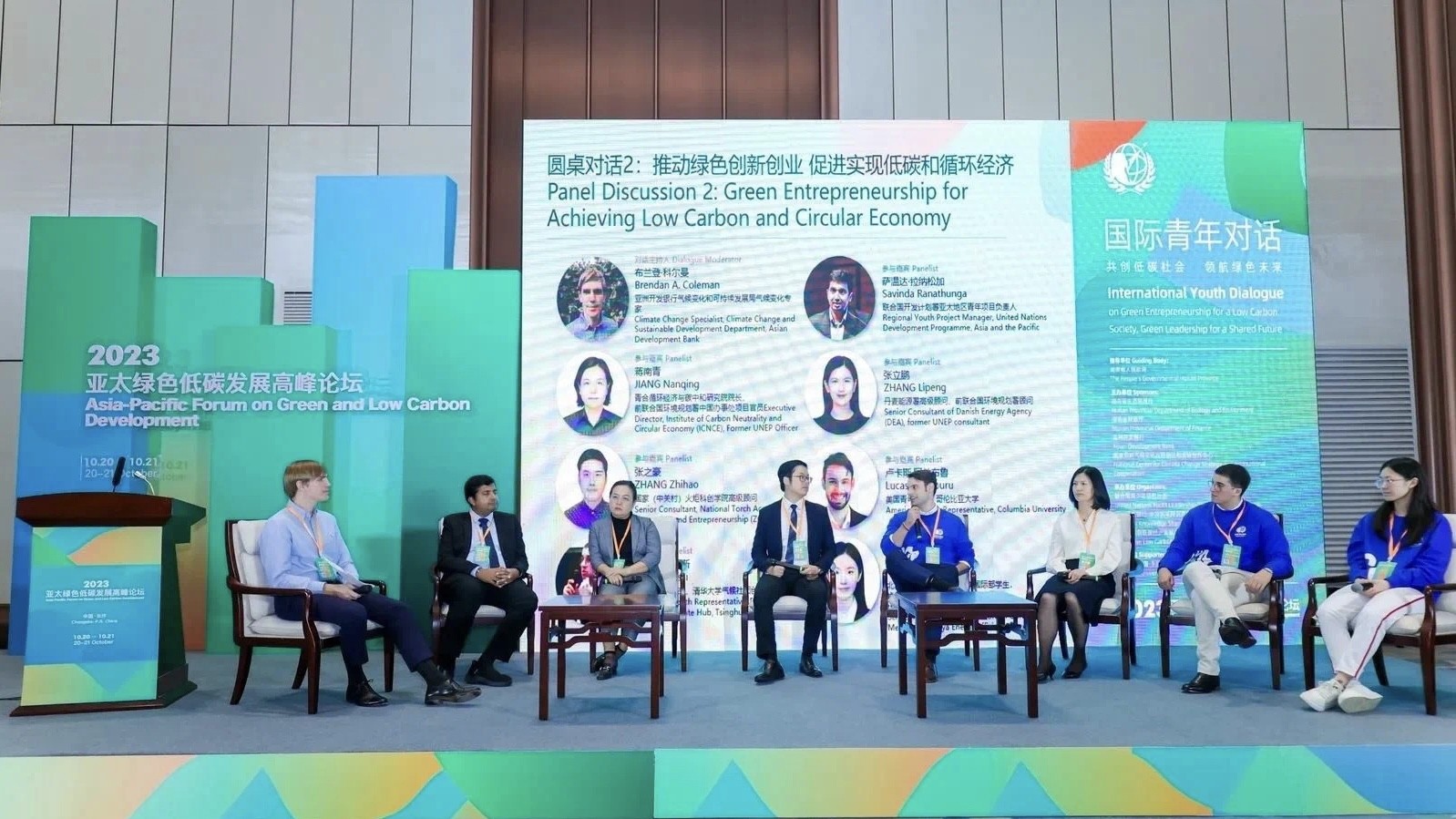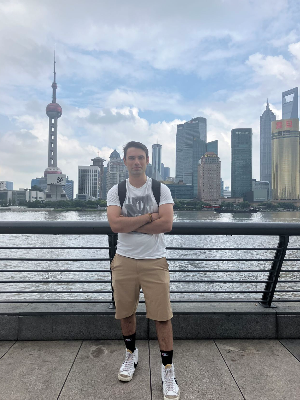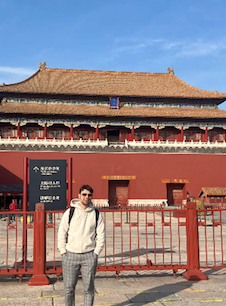From New York to Shanghai: My Internship Experience in China is Life-Changing
Lucas Aramburu CC'23 embarked on his first journey to China, an experience he found to be truly transformative.
Following is a transcript of the full interview, lightly edited for clarity.
Tell us about yourself! What brought you to China?
My name is Lucas Alejandro Aramburu. My Chinese name is 安路 (ān lù). I'm a 2023 graduate of Columbia College. I'm currently working as an intern at a Shanghai-based energy technology company. My hometown is Boston, USA.
How's your internship experience so far? What have you learned?
The big learning experience for me here in China has absolutely been understanding the different business and office cultures of a Chinese company. I'm lucky that pretty much all of my colleagues are Chinese. Not only has that been a great opportunity for me to improve my language abilities, but it's also been an opportunity for me to understand how things are done here, immerse myself in the culture, and find new ways to connect with what I'm interested in, which is the sustainable technology field.
I feel like being able to apply the skills that I learned at Columbia in a new global context, not just in a cultural sense but also in a technical and professional sense, has been a great opportunity for me to learn and grow.
I'm very excited to see how I'm going to be able to continue engaging with China in the future.
Is this your first time in China? What's your impression of the country?
Yes, this is my first time in China, and it's been a really special experience because I've been learning Mandarin for about eight years. The opportunity for me to finally come to the country that captured my interest for so many years has just been life-changing.
When I first got to Shanghai, I was blown away by the scale of the city. How amazing that so many people can coexist in the same place at once. Beijing, as the cultural and political capital of the country, also has its own distinct flavors and culture that I've also come to appreciate in my short time here.
The most interesting thing for me so far has been that I was able to go to Changsha upon the recommendation of the Columbia Global Centers | Beijing. I was invited to speak on the Youth Entrepreneurship and Leadership panel at the Asian Development Bank's Asia-Pacific Forum on Low-carbon Development. Aside from being able to connect with people and speak about something I am passionate about, I was also able to see what life is like in Changsha. The night market there is really a particular place to be!

What different perceptions do you have after you came to China compared to before?

I was blown away by the public spaces in Shanghai, even when they're crowded. There is a very harmonious planning of the city. The parks are absolutely beautiful, and I love going out on city walks with my Chinese friends.
Another aspect is that I probably overestimated how different the business culture was actually going to be. I found that my experience in the Chinese office with Chinese coworkers has been largely the same as it would be in the United States. I think that being able to understand Mandarin has certainly helped bridge the language barrier.
Do you have any advice for Columbia students who are also interested in interning and working in China?

First of all, if you have the opportunity to come to China to study, intern, or engage in any kind of cultural exchange, I think you absolutely should take that. I'm very glad that I did.
Before you come, definitely figure out the necessary technology to survive in China because payment apps like Alipay and WeChat are essential. Make sure you have a Chinese phone number, and your finances are all set. Outside of that, I think the more efficient apps like Meituan and Taobao make your life much easier. If you're able to navigate them in Chinese, even better.
Finally, being open to the idea that Chinese culture is slightly different. Being able to transition to that. Learning some everyday Mandarin usage that you might not get in the classroom is pretty helpful because even in professional settings, people might still use some terms that are perhaps not textbook Mandarin.
I strongly encourage universities, educational institutions, and companies to continue having programs for American and international students in China.